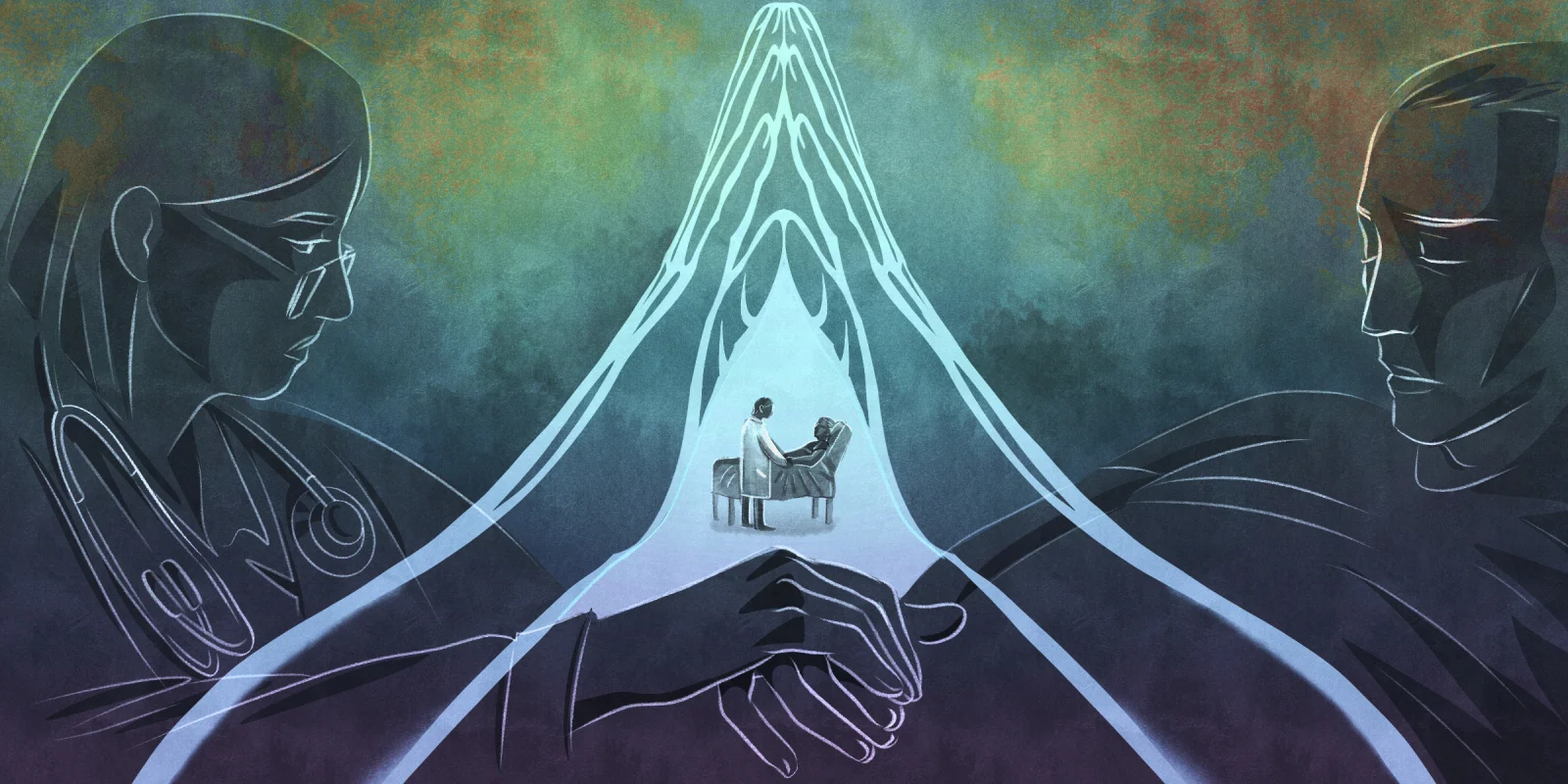I glance at my watch and sigh, thinking “I wish I didn’t have to go in tomorrow, I want just one more day of rest.” I turn to my friends at the dinner party to inform them of my early departure, not hiding my displeasure in leaving. In an effort to ease my disappointment they say, “But you get to go save lives tomorrow!”
Anyone who works in health care is familiar with this response. For most of us, however, it isn’t really the truth. Most days I simply review labs, tests, and vital signs; examine my patients; make minor changes to medications; and await imaging or evaluations by specialists. As an ICU NP, much of my time is spent dealing with the chronically and critically ill — easing the burden of suffering rather than truly saving a life.
I could give countless examples of patients who fit into this category of illness. They are all hoping their stay in the ICU will be short lived, but some may suddenly take a turn for the worse or have one setback after another. When repeated treatments are failing and the organ dysfunction is adding up, we know the odds are against our patient and the help we can offer may no longer be what was originally intended.
The sad reality is that while we hope to save everyone, we simply cannot. Thus, a crucial part of our job is to shift focus from trying to save patients to trying to end suffering. This means moving toward comfort measures and allowing patients a death with dignity.
Sadly, such dignity in death is not always the norm. One example that stands out is a patient I took care of last year. He was a middle-aged man who entered the hospital hoping for a quick admission and discharge home but suffered a sudden cardiac arrest. Due to the lack of oxygen to his brain, he lost most of his brain function other than what was needed to keep his organs functioning. While hospitalized, he was on a ventilator for several weeks, so his family decided to perform a tracheostomy and a feeding tube placement. Discussions about quality of life were attempted but to no avail. Over the following weeks, countless infections took charge of his body; he ended up on dialysis and was withering away with no meaningful neurological recovery.
While members of the health care team continued to treat this patient, we also made attempts to discuss goals of care with family members. We tried to help them decide if this is the life the patient would have wanted and when it would be “enough.” Despite our efforts to level with them and explain that his quality of life had been compromised, they requested that care continue full steam ahead. They also prohibited further discussions on the topic.
As it turns out, such situations where recovery is out of reach are fairly common: I think back on patients I’ve taken care of like the 80-year-old man with severe sepsis from pneumonia who had been on a ventilator for two weeks and who had ischemic limbs from medications to help sustain his blood pressure, or the 65-year-old woman with stage 4 liver cancer who had metastatic lesions in multiple organs and was spontaneously bleeding. Research backs my experience up as well: A study conducted by the Society of Critical Care Medicine found that 1 in 5 deaths that occur in the U.S. will happen in an ICU setting.
With this number likely to increase with our growing population, ICU clinicians need to arm themselves with the tools to help patients and families deal with death and encourage a death that is dignified and meaningful to them and their loved one. Currently, ICU clinicians rely on patients’ stated wishes, prior medical power of attorney, or next of kin to aid in decision-making once presented with all the facts of the case. However, there is more we can do. In medicine, there is a growing specialty called palliative care that encompasses the goal of ending suffering and optimizing quality of life; ICU clinicians should be ensuring that these specialists are part of the discussion as soon as the outcome starts to look grim. Palliative care clinicians are master navigators at end of life discussions and symptom management; we need them by our side.
The case of the middle-aged man above did not end well. Ultimately, he spent close to a year in the hospital battling severe infections until his body made the decision that his time was finished on this earth. This was not the dignified death most people would imagine.
Juxtaposed against him is an example of a recent patient who was able to have more control over how her life ended. When we explained to her that there were no further treatment options, she chose to be sent home with hospice and be as comfortable as she could. She was able to eat for pleasure, receive pain medication when needed, and be surrounded by her family in the bed where she spent most of her nights, wrapped in her own blankets and sheets that smelled of home.
Among non-health care professionals, there is a misconception that clinicians are in the business of helping people recover — but in reality, while we certainly do help people, sometimes the help we offer is to ease suffering. Pain and agony do not have to be part of the story and it is important to be transparent, manage expectations, and always ask yourself “Is this what the patient wants?”. If palliative care services are not available, continuing to have open and honest discussions from time of admission about the trajectory of care is key. Of course, we have to respect patient and family wishes and do everything within our ability to meet those wishes, but when a wall is stopping further progress or treatments aren’t enough, it is our burden of responsibility to step in and be matter-of-fact that the dreaded ending has approached. This is as much the ICU clinician’s job as the palliative care clinician’s — and we should treat it as such.
What does a dignified death mean to you? Share your thoughts in the comments.
Kymberley Armstrong is an ICU Nurse Practitioner in Houston, TX at Baylor College of Medicine. She has been taking care of critically ill patients for over seven years. Born and raised in Texas, she attended The University of Texas at Austin and is an avid Longhorn fan. Kymberley is a 2023–2024 Doximity Op-Med Fellow.
Illustration by April Brust







